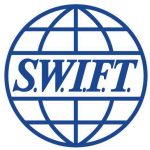 Bottom-line up-front: In the absence of credible economic arguments, Germany’s foreign minister, Heiko Maas, is making political threats disguised as economic arguments. Assuming US market access remains important to EU companies, business will continue to trump political arguments in the foreseeable future.
Bottom-line up-front: In the absence of credible economic arguments, Germany’s foreign minister, Heiko Maas, is making political threats disguised as economic arguments. Assuming US market access remains important to EU companies, business will continue to trump political arguments in the foreseeable future.
Reuters, Financial Times, ZeroHedge and others reported that Germany is calling for a global payment system independent of the US.
An Alternative SWIFT System?
Germany’s foreign minister, Heiko Maas, recently advocated for the creation of a new payments system independent of the US. He believes a new SWIFT-like system would allow Brussels to be independent in its financial operations from Washington. He said, “as a means of rescuing the nuclear deal between Iran and the west.”
Is that statement from Germany more political or economically based?
SWIFT (Society for Worldwide Interbank Financial Telecommunication) is currently comprised of over 11,000 banks in over 200 countries. SWIFT transactions are settled in dollars and over 25 other global currencies.
How SWIFT Works
A discussion by Martin Armstrong on this subject in 2017 outlined that Visa International supports approximately 180 transaction currencies. This enables the processing of international transactions, not exclusively dollars, all through the SWIFT system. Twenty-six currencies can be used in the net settlement between Visa International and the SWIFT System’s participating members. The choice of currency can be decided by each member involved in the settlement.
Attempts to Replace SWIFT
You may recall discussions in 2013 and 2014 that Russia was developing its own alternative to the SWIFT system. A CNBC report (May 2018) quoted Russia’s Central Bank Chief, Elvira Nabiullina as saying: “Since back in 2014, we have been developing our own systems, including a payments system. Inside Russia we have created a system for transferring financial data, which is similar to SWIFT.”
Doubts about the veracity of that system have called it “not very credible” and “not realistic” for dealing with western partners. China’s CIPS system has also been touted as a replacement to the SWIFT system, but that hasn’t come to pass either. Note: CIPS originally stood for China International Payment System. This has apparently been renamed to: China Cross-border Inter-Bank Payment System.
Bottom-line: In the absence of credible economic arguments, Germany’s foreign minister, Heiko Maas, is making political threats disguised as economic arguments. According to the Financial Times, the EU has vowed to protect European businesses from punitive measures adopted by Washington. Presently, the EU has failed to convince EU companies (who are more concerned about maintaining access to the lucrative US market) to side with them in placing politics over economics (than in the more modest opportunities presented by Iran). Assuming US market access remains important to EU companies, business will continue to trump political arguments in the foreseeable future.
